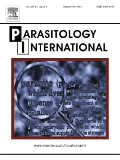
PARASITOLOGY INTERNATIONAL
Scope & Guideline
Fostering Global Insight in Parasitology
Introduction
Aims and Scopes
- Diversity and taxonomy of parasites:
The journal consistently publishes research on the identification, classification, and phylogenetic relationships of various parasitic taxa, including helminths, protozoa, and ectoparasites. - Molecular and genetic studies:
There is a strong emphasis on molecular techniques for the detection, characterization, and epidemiological studies of parasites, including the use of genomic and transcriptomic approaches. - Host-parasite interactions:
Research exploring the interactions between parasites and their hosts is a core focus, examining how these relationships influence disease outcomes and ecological dynamics. - Epidemiology and public health:
The journal publishes studies that investigate the prevalence, risk factors, and impact of parasitic diseases on human and animal health, contributing to public health strategies. - Control and treatment strategies:
Research on the development of new therapeutic approaches and control measures against parasitic infections, including the efficacy of traditional and novel compounds, is frequently featured. - Environmental and ecological aspects:
Studies that explore the ecological dynamics of parasitic infections and their role in ecosystems are also prominent, highlighting the importance of environmental factors in parasite transmission.
Trending and Emerging
- Genomic and proteomic studies:
There is a growing emphasis on utilizing genomic and proteomic techniques to understand parasite biology, evolution, and interactions with hosts, leading to novel insights into parasitic mechanisms. - One Health approach:
Research that integrates human, animal, and environmental health perspectives, particularly regarding zoonotic parasites, is increasingly prevalent, emphasizing the interconnectedness of health disciplines. - Antimicrobial resistance and drug development:
Emerging studies are focusing on the mechanisms of resistance in parasites and the exploration of new therapeutic agents, reflecting a global health concern regarding treatment efficacy. - Impact of climate change on parasitism:
Research exploring how climate change affects parasite distribution, transmission patterns, and host-parasite dynamics is gaining traction, highlighting the need for adaptive management strategies. - Use of bioinformatics and computational modeling:
The application of bioinformatics tools and computational models to predict parasite behavior, transmission dynamics, and treatment outcomes is becoming an important trend in parasitology research.
Declining or Waning
- Traditional parasitological methods:
There is a noticeable decrease in papers employing classical parasitological techniques, such as morphological identification and basic microscopy, as molecular and advanced genetic methods gain precedence. - Historical reviews and case reports:
The frequency of historical reviews and singular case reports has diminished, possibly due to a greater emphasis on broader epidemiological studies and molecular characterization. - Focus on niche parasites:
Research on less common or niche parasitic species appears to be waning, possibly overshadowed by more impactful studies on widely recognized parasites affecting human and animal health.
Similar Journals
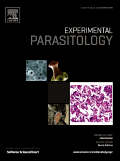
EXPERIMENTAL PARASITOLOGY
Innovative Research Driving Solutions in Parasitic InfectionsEXPERIMENTAL PARASITOLOGY, published by Academic Press Inc Elsevier Science, is a prominent journal in the domains of immunology, infectious diseases, and parasitology, with roots extending back to 1951. This journal, bearing the ISSN 0014-4894 and E-ISSN 1090-2449, serves as a critical conduit for sharing advancements in the understanding of parasite biology, host-parasite interactions, and the immunological responses elicited by parasitic infections. Although it currently operates under a subscription model without open access options, its rigorous scholarly content is vital for researchers and practitioners alike looking to stay informed on the latest developments and applications in the field. With a recent categorization as Q3 in key scientific categories, including Infectious Diseases and Parasitology, and a Scopus ranking solidifying its relevance, EXPERIMENTAL PARASITOLOGY is an essential resource for those committed to advancing knowledge and solutions to parasitic diseases.
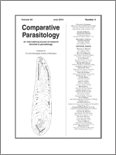
Comparative Parasitology
Unveiling the Complexities of Parasitic RelationshipsComparative Parasitology, published by the Helminthological Society of Washington, serves as a vital platform for the dissemination of innovative research in the fields of parasitology, ecology, and evolution. With an ISSN of 1525-2647 and an E-ISSN of 1938-2952, this journal has charted a course of academic influence since its inception in 1996, and is set to continue until 2024. Although it currently holds a Q4 ranking in both Ecology, Evolution, Behavior and Systematics and Parasitology categories, it guarantees significant contributions and diverse studies, providing an essential resource for researchers and practitioners in these domains. Located in the United States and managed by Allen Press Inc, Comparative Parasitology emphasizes open access, ensuring that vital research findings are readily available to the global community. The journal remains dedicated to fostering an understanding of the complexities of host-parasite interactions and promoting interdisciplinary collaboration, making it a crucial resource for students and professionals alike.
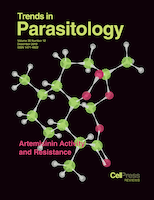
TRENDS IN PARASITOLOGY
Bridging knowledge gaps in infectious disease science.TRENDS IN PARASITOLOGY is a premier academic journal published by CELL PRESS, focusing on the dynamic field of parasitology and infectious diseases. With an ISSN of 1471-4922, this esteemed journal is recognized for its high impact within the research community, boasting a Q1 ranking in both the Infectious Diseases and Parasitology categories as of 2023. This places it among the top-tier journals in the field, as evidenced by its remarkable Scopus rankings, where it ranks #3 out of 79 in Parasitology and #29 out of 344 in Infectious Diseases. Spanning over two decades of scholarly contributions from 2001 to 2024, TRENDS IN PARASITOLOGY emphasizes the latest advancements, challenges, and innovative methodologies in parasitology, making it an invaluable resource for researchers, healthcare professionals, and students alike. With an increasing focus on open access initiatives, this journal not only promotes widespread dissemination of knowledge but also encourages collaboration across the global scientific community. Whether you are investigating novel interventions, exploring parasite evolution, or understanding host-pathogen interactions, TRENDS IN PARASITOLOGY remains at the forefront of research, driving forward the understanding of parasitic diseases.

Parasitologists United Journal
Navigating the Complex World of ParasitesParasitologists United Journal is a premier academic outlet dedicated to advancing the field of parasitology. Published by the Egyptian Parasitologists United Society (EPU), this journal serves as a critical platform for researchers, professionals, and students alike, allowing them to share innovative findings and developments in the study of parasites and their impacts on human, animal, and environmental health. With an ISSN of 1687-7942 and an E-ISSN of 2090-2646, it aims to promote knowledge dissemination while fostering collaboration across borders. Although currently not an Open Access journal, its commitment to high-quality, peer-reviewed content ensures that the latest research reaches discerning readers. By featuring a diverse array of articles spanning various aspects of parasitology, the journal significantly contributes to the global understanding of parasitic diseases and their management, making it an essential resource for academic and clinical professionals seeking to enhance their expertise in this vital area of health science.

ACTA TROPICA
Elevating Standards in Tropical Research ExcellenceACTA TROPICA is a prestigious academic journal published by Elsevier, dedicated to advancing knowledge in the fields of Infectious Diseases, Insect Science, Parasitology, and Veterinary sciences. With an ISSN of 0001-706X and an E-ISSN of 1873-6254, it has established itself as a vital resource since its inception in 1945. The journal is recognized for its significant impact within the scientific community, boasting a Q2 ranking in Infectious Diseases and Parasitology, and a Q1 ranking in both Insect Science and Veterinary (miscellaneous) categories as of 2023. Specifically, it ranks #19 in Scopus for Parasitology and #129 for Infectious Diseases, underscoring its high visibility and relevance in these vital research arenas. ACTA TROPICA is a non-open access journal, ensuring high-quality peer-reviewed content that complements ongoing research and professional practices among scientists, researchers, and students. Explore groundbreaking studies and contribute to the ongoing dialogue within your field by selecting ACTA TROPICA as your next publication destination.

ISRAEL JOURNAL OF VETERINARY MEDICINE
Exploring Innovations in Animal Health and ScienceThe Israel Journal of Veterinary Medicine, published by the Israel Veterinary Medical Association, serves as a vital resource for researchers, professionals, and students in the fields of veterinary medicine and animal science. With a commitment to advancing knowledge across diverse veterinary disciplines, this journal plays a crucial role in disseminating significant findings and innovations that influence both local and global veterinary practices. Although it currently holds a Q4 ranking in both the Animal Science and Zoology and Veterinary (miscellaneous) categories, the journal's open access policy, enabling free availability of articles, aspires to increase its accessibility and engagement among the academic community. The journal's convergence of research from 2007 to 2024 showcases its dedication to continuously contributing to the evolving landscape of veterinary science.

PHYTOPARASITICA
Fostering Knowledge for Ecological Harmony and Sustainability.PHYTOPARASITICA, published by SPRINGER in the Netherlands, is a distinguished journal dedicated to the fields of Insect Science and Plant Science. With an impressive convergence of research from 1973 to 2024, the journal holds a notable position in academic circles, ranking in Q2 for both categories as of 2023, according to Scopus metrics. This places PHYTOPARASITICA within the top 67th percentile for Insect Science and the 59th percentile for Plant Science, reflecting its significant impact on research and advancements in these crucial fields. The journal is committed to disseminating high-quality, peer-reviewed research that addresses the interplay between plants and their parasitic organisms, contributing to the broader understanding of agricultural sustainability and ecological balance. Researchers, professionals, and students will find this journal an essential resource for cutting-edge insights and developments within its domain.
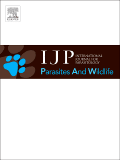
International Journal for Parasitology-Parasites and Wildlife
Exploring the Interplay Between Wildlife and ParasitologyThe International Journal for Parasitology-Parasites and Wildlife, published by ELSEVIER, is a premier open-access journal dedicated to advancing the field of parasitology and wildlife research. Established in 2012, this influential journal has garnered a reputation for excellence, as evidenced by its impressive rankings, including Q1 in Animal Science and Zoology and Q2 in both Infectious Diseases and Parasitology as of 2023. With an ISSN of 2213-2244, this journal serves as a critical platform for researchers, professionals, and students, fostering a deeper understanding of parasite-host interactions and their ecological impacts. The journal encourages innovative studies that contribute to the mitigation of infectious diseases and enhance wildlife conservation efforts. With a commitment to open access, the International Journal for Parasitology-Parasites and Wildlife ensures that cutting-edge research is easily accessible to the global scientific community, helping to bridge gaps in knowledge and stimulate further inquiry.

KOREAN JOURNAL OF PARASITOLOGY
Fostering Collaboration in Parasitic Disease ResearchKorean Journal of Parasitology is a respected publication in the field of parasitology, originating from the esteemed Korean Society of Parasitology and affiliated with Seoul National University College of Medicine. Established in 1977, this journal focuses on disseminating significant research findings related to parasitic diseases, their vectors, and control measures, serving as a vital resource for researchers, medical professionals, and students alike. Although coverage in Scopus has been discontinued as of 2022, the journal remains a valuable platform for in-depth studies within the areas of Infectious Diseases and Immunology. With an ISSN of 0023-4001 and an E-ISSN of 1738-0006, the journal promotes open access to enhance academic sharing. Despite its current Scopus rankings, which place it in the 38th percentile for Infectious Diseases and 37th percentile for Immunology and Microbiology (Parasitology), it continues to contribute to the global discourse on parasitological research, encouraging collaboration and emphasizing the importance of this field in public health.

Ticks and Tick-Borne Diseases
Connecting research to combat tick-borne threats.Ticks and Tick-Borne Diseases, published by Elsevier GmbH, is a premier journal dedicated to advancing the field of infectious diseases related to tick-borne pathogens. With an ISSN of 1877-959X and an E-ISSN of 1877-9603, this journal has established itself as a leading platform for disseminating high-quality research, offering essential insights into the complexities of tick biology, transmission, and the diverse pathogens they carry. Recognized for its significant contributions, the journal holds a prestigious Q1 ranking in categories such as Infectious Diseases and Parasitology and maintains an impressive reputation with a Scopus rank of 16/181 in Insect Science. With publication spanning from 2010 to 2024, Ticks and Tick-Borne Diseases is crucial for academics, professionals, and students engaged in the interdisciplinary study of tick ecology, epidemiology, and control strategies. Submissions to this journal foster the exchange of ideas and encourage innovative research efforts, ultimately enhancing our understanding and management of tick-borne diseases on a global scale.